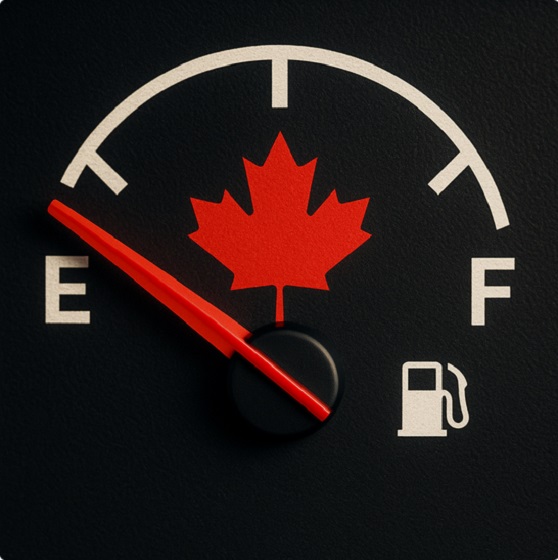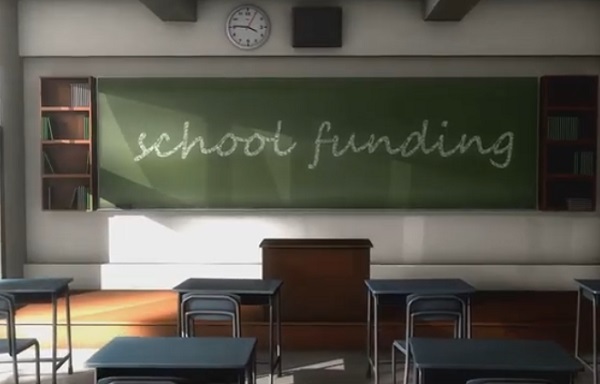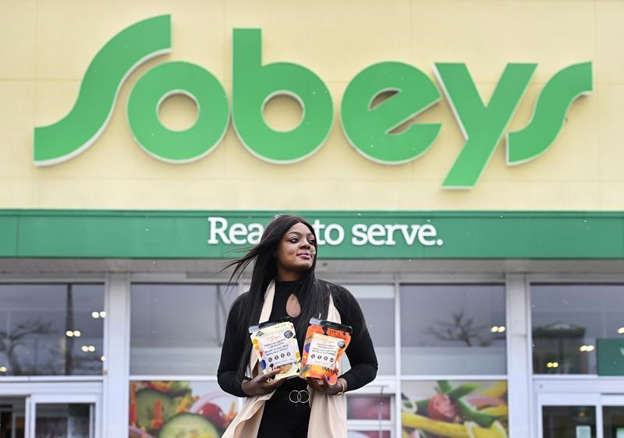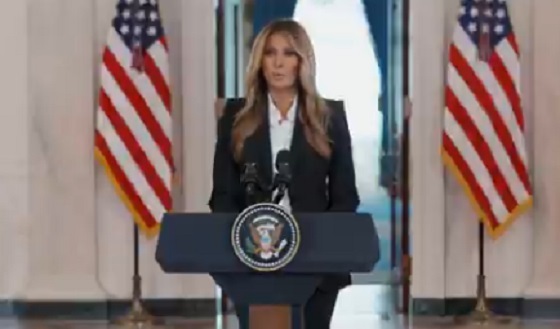Uncategorized
Trump struggles for a plan should the migrant caravan arrive

WASHINGTON — The Trump administration has not settled on a plan for what to do if a migrant caravan arrives at the southern border, despite threats by President Donald Trump to declare a national emergency or rescind aid from the countries whose people are journeying north.
Top immigration officials and close Trump advisers are still evaluating the options in closed-door meetings that have gotten increasingly heated in the past week, including one that turned into a shouting match as the caravan of about 7,000 people pushes north, according to administration officials and others with knowledge of the issue. They spoke to The Associated Press on condition of anonymity because they weren’t authorized to speak publicly on the topic.
The caravan, at least 1,000 miles (1,600
But the president’s inner circle on immigration is grappling with the same problems that have plagued them for months, absent any law change by Congress.
Some in Trump’s administration, like Homeland Security Secretary Kirstjen Nielsen, advocate for a diplomatic approach using relationships with Honduras, Mexico and El Salvador and the United Nations to stop the flow of migrants arriving to the U.S.
“We fully support the efforts of Guatemala, Honduras and Mexico as they seek to address this critical situation and ensure a safer and more secure region,” Nielsen said in statement earlier this week that noted her department was closely monitoring the possibility of gangs or other criminals that prey on those in “irregular migration.”
But others are agitating for more immediate options, including declaring a state of emergency, which would give the administration broader authority over how to manage people at the border; rescinding aid; or giving parents who arrive to the U.S. a choice between being detained months or years with their children while pursuing asylum, or releasing their children to a government shelter while a relative or guardian seeks custody.
Tensions boiled over last week, when Nielsen suggested going to the United Nations Committee on Human Rights in a meeting with White House chief of staff John Kelly. National security adviser John Bolton, a longtime critic of the U.N., exploded over the idea, the officials and people said. Nielsen responded that Bolton, not a frequent attendant of the immigration meetings, was no expert on the topic, they said.
White House spokeswoman Sarah Huckabee Sanders later said in a statement: “While we are passionate about solving the issue of illegal immigration, we are not angry at one another. However, we are furious at the failure of Congressional Democrats to help us address this growing crisis.”
Meanwhile, administration officials sounded off Tuesday on an increase in families coming across the border, mostly from Central America. Nearly a third of all people apprehended at the U.S.-Mexico border during the budget year 2018 were families and children — about 157,248 out of 395,579 total apprehensions.
Coupled with the caravan, Trump administration officials have said it’s a full-on crisis. They say loopholes in laws have allowed for a worsening border crisis where the vast majority of people coming illegally to the U.S. cannot be easily returned home.
But the administration’s efforts to enforce a hard-line stance on immigration through regulation changes and executive orders have been largely thwarted by the court system and, in the case of family separations earlier this year, stymied by a global outcry that prompted Trump to scrap separations through an executive order June 20.
While such caravans have occurred semiregularly over the years, this one has become a hot topic ahead of the Nov. 6 midterm elections. The march appeared to begin as a group of about 160 who decided to band together in Honduras for protection against the gangs who prey on migrants
If they arrive, they are likely to face long lines at ports of entry. Family detention space is limited to about 3,300 beds nationally, and, under a court settlement, children can generally be held no more than 20 days, so many would likely be released.
In a letter to the Department of Homeland Security and the State Department on Tuesday, Senate Judiciary Chairman Chuck Grassley and Sen. Mike Lee suggested that the administration make a “third party” agreement with Mexico that would force any caravan members seeking asylum to do so in their country of arrival — Mexico. The Republican lawmakers said the process already works that way in Europe.
Trump tweeted: “Sadly, it looks like Mexico’s Police and Military are unable to stop the Caravan heading to the Southern Border of the United States.” He said he had alerted Border Patrol and the military and called for a change in laws, and said that people of Middle Eastern descent had joined the group.
He later acknowledged that his claim was only a hunch.
“They could very well be,” he said. “There’s no proof of anything. But there could very well be.”
Asked if he was implying there were terrorists in the caravan, Trump said, “There could very well be.”
Tyler Houlton, a spokesman for Homeland Security, later tweeted that the department could confirm that gang members or serious criminals are in the caravan, but he didn’t provide details.
It was the latest effort to thrust immigration politics into the national conversation in the closing weeks of the congressional elections. He and his senior aides have long believed the issue — which was a centerpiece of his winning presidential campaign — is key to motivating GOP voters to turn out.
“Blame the Democrats,” he wrote. “Remember the midterms.”
___
Associated Press writer Jill Colvin contributed to this report.
Colleen Long, The Associated Press
Uncategorized
CNN’s Shock Climate Polling Data Reinforces Trump’s Energy Agenda


From the Daily Caller News Foundation
As the Trump administration and Republican-controlled Congress move aggressively to roll back the climate alarm-driven energy policies of the Biden presidency, proponents of climate change theory have ramped up their scare tactics in hopes of shifting public opinion in their favor.
But CNN’s energetic polling analyst, the irrepressible Harry Enten, says those tactics aren’t working. Indeed, Enten points out the climate alarm messaging which has permeated every nook and cranny of American society for at least 25 years now has failed to move the public opinion needle even a smidgen since 2000.
Appearing on the cable channel’s “CNN News Central” program with host John Berman Thursday, Enten cited polling data showing that just 40% of U.S. citizens are “afraid” of climate change. That is the same percentage who gave a similar answer in 2000.
Dear Readers:
As a nonprofit, we are dependent on the generosity of our readers.
Please consider making a small donation of any amount here.
Thank you!
Enten’s own report is an example of this fealty. Saying the findings “kind of boggles the mind,” Enten emphasized the fact that, despite all the media hysteria that takes place in the wake of any weather disaster or wildfire, an even lower percentage of Americans are concerned such events might impact them personally.
“In 2006, it was 38%,” Enten says of the percentage who are even “sometimes worried” about being hit by a natural disaster, and adds, “Look at where we are now in 2025. It’s 32%, 38% to 32%. The number’s actually gone down.”
In terms of all adults who worry that a major disaster might hit their own hometown, Enten notes that just 17% admit to such a concern. Even among Democrats, whose party has been the major proponent of climate alarm theory in the U.S., the percentage is a paltry 27%.
While Enten and Berman both appear to be shocked by these findings, they really aren’t surprising. Enten himself notes that climate concerns have never been a driving issue in electoral politics in his conclusion, when Berman points out, “People might think it’s an issue, but clearly not a driving issue when people go to the polls.”
“That’s exactly right,” Enten says, adding, “They may worry about in the abstract, but when it comes to their own lives, they don’t worry.”
This reality of public opinion is a major reason why President Donald Trump and his key cabinet officials have felt free to mount their aggressive push to end any remaining notion that a government-subsidized ‘energy transition’ from oil, gas, and coal to renewables and electric vehicles is happening in the U.S. It is also a big reason why congressional Republicans included language in the One Big Beautiful Bill Act to phase out subsidies for those alternative energy technologies.
It is key to understand that the administration’s reprioritization of energy and climate policies goes well beyond just rolling back the Biden policies. EPA Administrator Lee Zeldin is working on plans to revoke the 2010 endangerment finding related to greenhouse gases which served as the foundation for most of the Obama climate agenda as well.
If that plan can survive the inevitable court challenges, then Trump’s ambitions will only accelerate. Last year’s elimination of the Chevron Deference by the Supreme Court increases the chances of that happening. Ultimately, by the end of 2028, it will be almost as if the Obama and Biden presidencies never happened.
The reality here is that, with such a low percentage of voters expressing concerns about any of this, Trump and congressional Republicans will pay little or no political price for moving in this direction. Thus, unless the polls change radically, the policy direction will remain the same.
David Blackmon is an energy writer and consultant based in Texas. He spent 40 years in the oil and gas business, where he specialized in public policy and communications.
Uncategorized
Kananaskis G7 meeting the right setting for U.S. and Canada to reassert energy ties


Energy security, resilience and affordability have long been protected by a continentally integrated energy sector.
The G7 summit in Kananaskis, Alberta, offers a key platform to reassert how North American energy cooperation has made the U.S. and Canada stronger, according to a joint statement from The Heritage Foundation, the foremost American conservative think tank, and MEI, a pan-Canadian research and educational policy organization.
“Energy cooperation between Canada, Mexico and the United States is vital for the Western World’s energy security,” says Diana Furchtgott-Roth, director of the Center for Energy, Climate and Environment and the Herbert and Joyce Morgan Fellow at the Heritage Foundation, and one of America’s most prominent energy experts. “Both President Trump and Prime Minister Carney share energy as a key priority for their respective administrations.
She added, “The G7 should embrace energy abundance by cooperating and committing to a rapid expansion of energy infrastructure. Members should commit to streamlined permitting, including a one-stop shop permitting and environmental review process, to unleash the capital investment necessary to make energy abundance a reality.”
North America’s energy industry is continentally integrated, benefitting from a blend of U.S. light crude oil and Mexican and Canadian heavy crude oil that keeps the continent’s refineries running smoothly.
Each day, Canada exports 2.8 million barrels of oil to the United States.
These get refined into gasoline, diesel and other higher value-added products that furnish the U.S. market with reliable and affordable energy, as well as exported to other countries, including some 780,000 barrels per day of finished products that get exported to Canada and 1.08 million barrels per day to Mexico.
A similar situation occurs with natural gas, where Canada ships 8.7 billion cubic feet of natural gas per day to the United States through a continental network of pipelines.
This gets consumed by U.S. households, as well as transformed into liquefied natural gas products, of which the United States exports 11.5 billion cubic feet per day, mostly from ports in Louisiana, Texas and Maryland.
“The abundance and complementarity of Canada and the United States’ energy resources have made both nations more prosperous and more secure in their supply,” says Daniel Dufort, president and CEO of the MEI. “Both countries stand to reduce dependence on Chinese and Russian energy by expanding their pipeline networks – the United States to the East and Canada to the West – to supply their European and Asian allies in an increasingly turbulent world.”
Under this scenario, Europe would buy more high-value light oil from the U.S., whose domestic needs would be back-stopped by lower-priced heavy oil imports from Canada, whereas Asia would consume more LNG from Canada, diminishing China and Russia’s economic and strategic leverage over it.
* * *
The MEI is an independent public policy think tank with offices in Montreal, Ottawa, and Calgary. Through its publications, media appearances, and advisory services to policymakers, the MEI stimulates public policy debate and reforms based on sound economics and entrepreneurship.
As the nation’s largest, most broadly supported conservative research and educational institution, The Heritage Foundation has been leading the American conservative movement since our founding in 1973. The Heritage Foundation reaches more than 10 million members, advocates, and concerned Americans every day with information on critical issues facing America.
-

 International12 hours ago
International12 hours agoPoland’s president signs new zero income tax law for parents with two children
-

 Business2 days ago
Business2 days agoCutting Red Tape Could Help Solve Canada’s Doctor Crisis
-
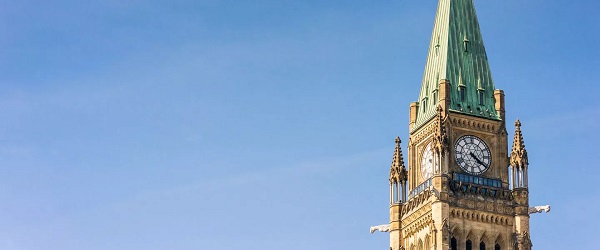
 Business1 day ago
Business1 day agoFederal Budget 2025: A responsible media would ensure Canadians know about the dismal state of federal finance
-

 Alberta22 hours ago
Alberta22 hours agoDiploma Exams Affected: No school Monday as ATA rejects offer of enhanced mediation
-
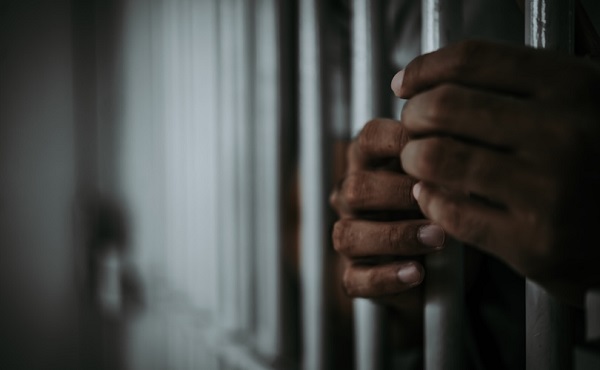
 International13 hours ago
International13 hours agoAustralian territory bans men from women’s prisons in national first
-
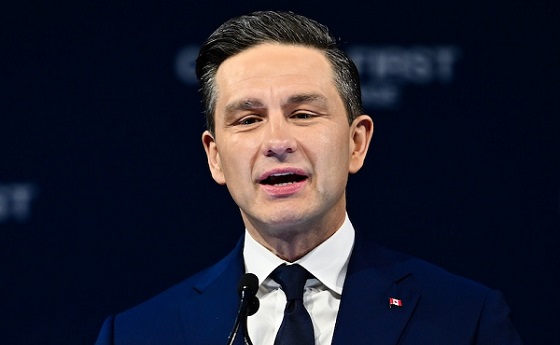
 National13 hours ago
National13 hours agoPoilievre accuses Canada’s top police force of ‘covering up’ alleged Trudeau crimes
-
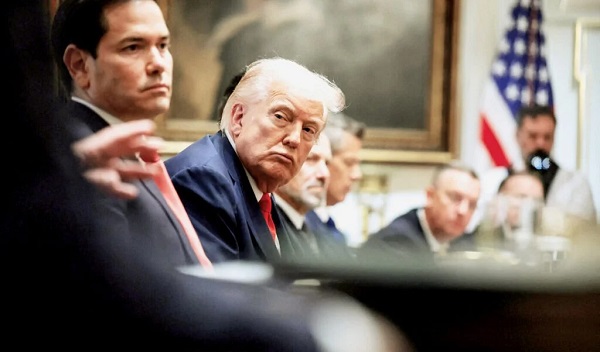
 Bruce Dowbiggin2 days ago
Bruce Dowbiggin2 days agoBrokeback President: We Can’t Quit You, Donald
-

 COVID-1912 hours ago
COVID-1912 hours agoFreedom Convoy leader Tamara Lich says ‘I am not to leave the house’ while serving sentence

